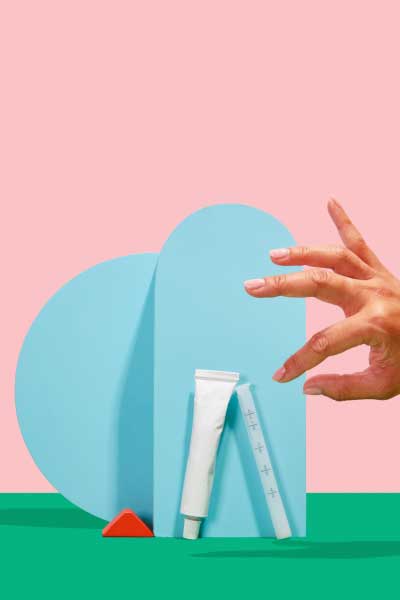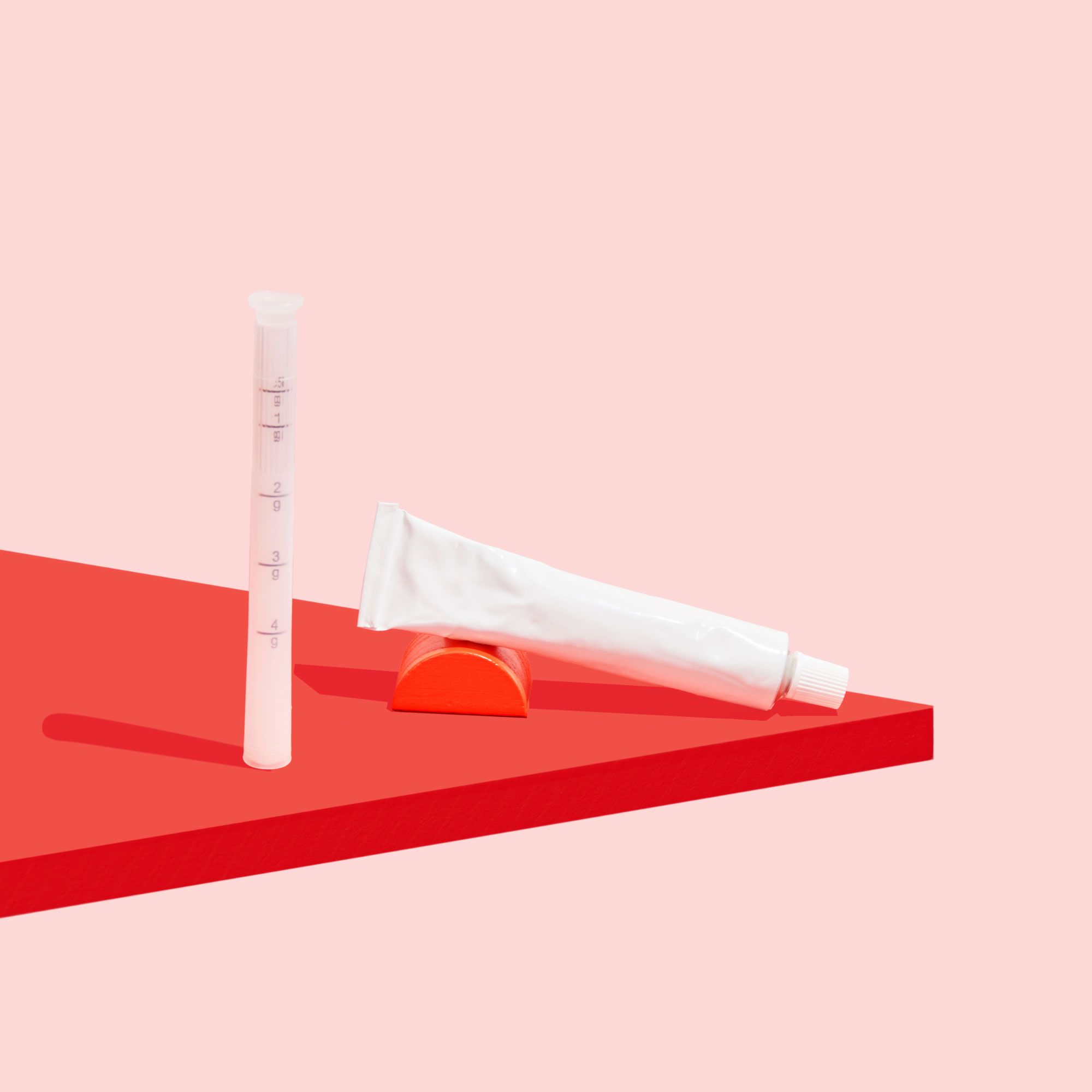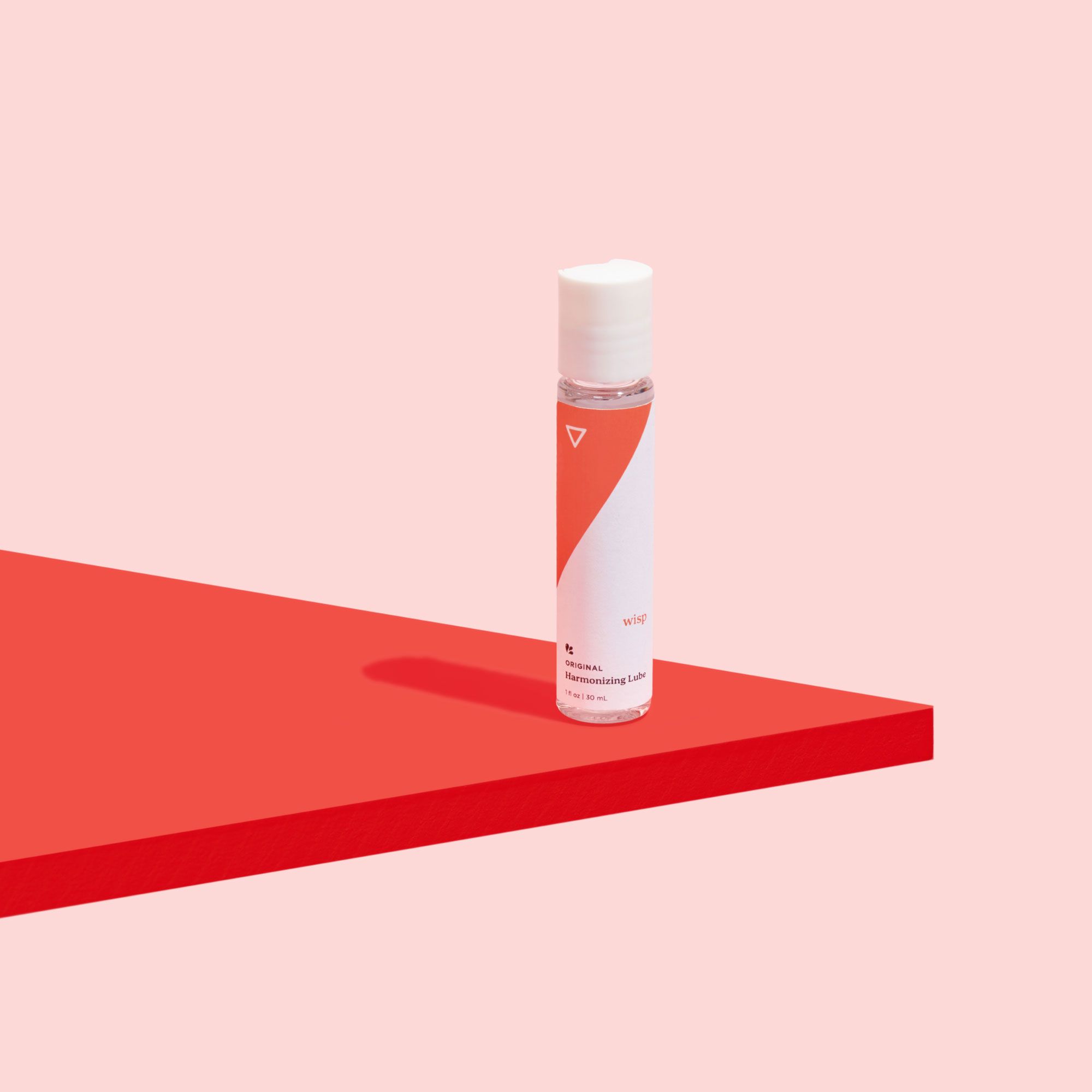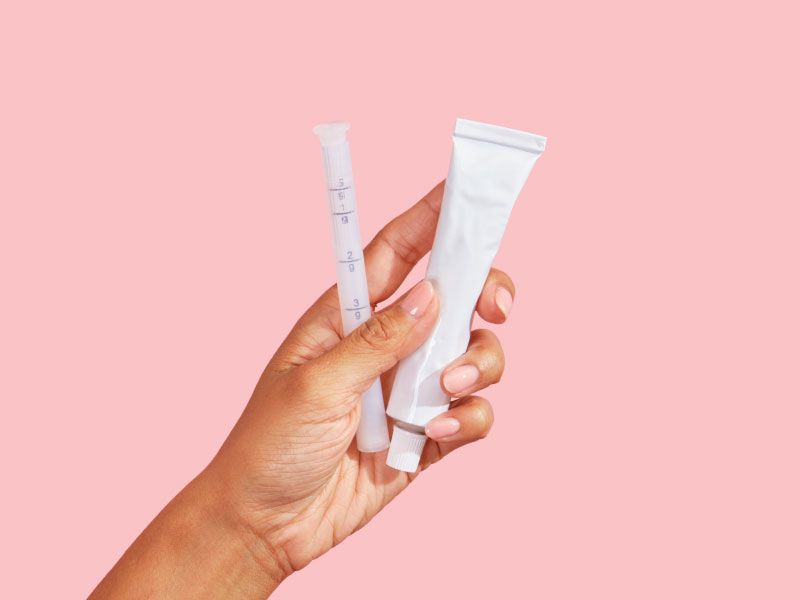
Overcoming Vaginal
Dryness During Sex
By Lizzie De La Cruz
December 23, 2024
Many of us will experience vaginal dryness during sex at some point in our lives. It can happen at any stage, but it is especially common in women going through hormonal changes. One big hormonal change that can cause this kind of discomfort is menopause, with 50-70% of postmenopausal women experiencing some degree of dryness. And with those kinds of numbers, talking about dryness during sex shouldn’t be taboo.
Vaginal dryness is uncomfortable and can make having sex or masturbating unpleasant and even painful. It can lead to uncomfortable moments during intimacy and can negatively impact relationships. The good news is that there are treatments available to help with vaginal dryness. Read on to learn what causes vaginal dryness during sex and what you can do about it.
Vaginal Moisture
When everything is working in balance, glands in your cervix produce natural lubricants that keep your vagina moist. This moisture also keeps the area clean and healthy. A little bit of vaginal discharge is completely healthy and helps to keep tissues healthy and moisturized. But, what makes vaginal moisture happen? During sex, two glands that are located at the entrance to the vagina, called Bartholin’s glands, produce moisture to provide vaginal lubrication. These glands are triggered when you become sexually aroused. Feel like your Bartholin’s glands aren’t giving you quite enough moisture for comfortable sex? That’s perfectly normal, and adding a little (or a lot) of lube can help eliminate friction and make sex more enjoyable.
Why is My Vagina Dry?
For some women, their Bartholin’s glands do not lubricate the area enough. While not super common, it’s also possible to develop a cyst or an abscess on a Bartholin’s gland that keeps any lubrication from leaving the gland. About 2% of all gynecologist visits are due to symptomatic Bartholin’s gland cysts. Lack of lubrication from a gland issue can make sex and masturbation unpleasant and painful.
That said, the most common cause of vaginal dryness is hormonal change, specifically fluctuating or decreasing estrogen levels. Estrogen levels start changing during perimenopause before dropping off almost entirely after menopause. More than half of postmenopausal women experience some degree of vaginal dryness. Menopause-related dryness won’t improve on its own, which makes talking with a healthcare provider a must.
But, as we mentioned, vaginal dryness can happen at any age! Around 17% of premenopausal women between the ages of 17 and 50 also deal with vaginal dryness and pain during sex. If you have recently had a baby or are on certain medications, you may have also experienced vaginal dryness.
What Causes Vaginal Dryness During Sex?
With this uncomfortable issue being so common, it’s natural to wonder what causes vaginal dryness during sex. You might only experience a dry feeling during sex, or you might be dealing with dryness all day (and night) long. Let’s look at a few possible causes for both cases.
- Hormonal changes: Perimenopause, menopause, childbirth, and breastfeeding can all throw your hormones for a loop and result in vaginal dryness.
- Psychological factors: Our bodies and minds are connected! Being stressed or anxious can certainly affect how much you’re interested in sex–and how much lubrication your body provides.
- Not enough foreplay: Makes sense, doesn’t it? Without enough foreplay, both pre- and postmenopausal women can experience vaginal dryness during sex.
- Dehydration: Grab your water bottle, folks! Drinking enough liquid is essential for proper vaginal lubrication–but lube can always pick up the slack.
- Health conditions: Certain health conditions can cause vaginal dryness including premature ovarian insufficiency, diabetes, allergies, and Sjogren syndrome.
- Medications: Anti-estrogen medications used to treat endometriosis or uterine fibroids can lead to dryness, as well as antidepressants, antihistamines, and chemotherapy.
Why Does it Hurt?
The thickness of the vaginal wall can become thinner, dryer, and more delicate due to any of the reasons listed above. If there is not adequate lubrication, any kind of friction can damage or irritate it. The pain can be lasting and can even bother you when you are not having sex. Simply sitting, standing, exercising, or going to the bathroom can become uncomfortable or even painful.
First, understand that vaginal dryness is normal—but that doesn’t mean you just have to deal with it. Once you know what’s causing your discomfort, you can figure out the best way to improve it.

Estradiol Vaginal Cream
Starting at $20
A hormonal cream that soothes vaginal dryness caused by menopause, or during postpartum, especially with breastfeeding.

Non-Hormonal Vaginal Moisturizer
Starting at $60
Hormone-free moisture for all life stages, including breastfeeding, postpartum, and menopause.

Original Harmonizing Lube
Starting at $10
Silicone-based to reduce friction and make sex easier, more pleasurable, and more fun.

Vulva Coco Cream
Starting at $15
Keep your bikini line silky smooth with our all-natural, fragrance free intimate moisturizer.
What Can I Do About It?
The good news is that there are treatments available to help with vaginal dryness during sex. Which one you should use depends on the cause of your dryness. If you are not menopausal, your treatment options can include:
- Over-the-counter vaginal lubricant used just before having sex
- Non-hormonal vaginal moisturizer applied a few times per week
- Plenty of lube during sex to help reduce friction and discomfort
- Vulva moisturizer to soften external skin and reduce irritation
If your vaginal dryness during sex is caused by hormonal changes like perimenopause, menopause, or postpartum, reach out to a healthcare provider to discuss your treatment options.
Menopause-related vaginal dryness and thinning won’t improve on its own, and the sooner you start treating it, the better. Possible treatment options include:
- Local estrogen: Tablets, creams, or rings that deliver estrogen directly to the vagina
- DHEA (dehydroepiandrosterone) supplement: Supplement in oral pill form that could improve vaginal dryness as well as address pain during sex
- Ospemifene: Tablet similar to local estrogen but formulated especially for women who cannot use estrogen replacements
If you are menopausal, or breastfeeding postpartum, Estradiol Vaginal Cream may be a good option for you to explore. The hormonal ups and downs that occur during these times can lead to dryness and thinning of the vaginal tissue that can be uncomfortable or downright painful. Estradiol Cream uses estrogen inserted into the vagina to moisturize and rejuvenate the tissue and address discomfort. Connect with a Wisp provider for a consultation!
What You Can Do At Home
There are a few things that you can do at home to help increase vaginal moisture. First, never ever douche or wash the inside of your vagina! The vagina is self-cleaning, and douching disrupts your vaginal microbiome and can lead to irritation and infection. Try to avoid using perfumed soaps or creams near your vagina that may irritate the delicate skin. Increasing foreplay before penetration also gives your body more time before sex for your glands to start producing their natural lubrication.
Wisp Providers Can Help
If you are suffering from vaginal dryness, regardless of your age or stage in life, don’t be afraid to talk about it! Reach out to a Wisp provider to discuss your dryness and find an appropriate treatment. Just because vaginal dryness is common doesn’t mean you have to suffer through. With Wisp, you can take your healthcare into your own hands. Wisp offers affordable support for women’s healthcare, such as birth control, emergency contraception, STI treatments, yeast infection treatments, and UTI remedies.


